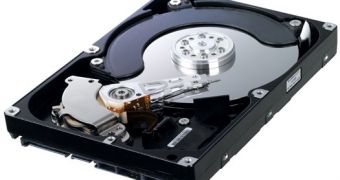Some segments of the IT industry may have managed to get away more or less intact after the disaster in Japan, but it seems the HDD segment was far less fortunate than most, as the earthquake did quite some damage to major facilities in the country.
The disaster that hit Japan on March 11 will go down in history as one of the biggest catastrophes of recent decades.
After an 8.9-magnitude earthquake awoke to the northeast of Tokio, it shook Japan quite strongly while sending tsunamis ravaging into the land.
The death toll is estimated at over 18,000 people and things will get even worse if the ongoing crisis at a damaged nuclear power plant isn't corrected soon.
While the authorities are dealing with radiation dangers and evacuations, IT players are evaluating their status after some of the facilities in Japan were hit.
The HDD segment seems to be among those worst off, as TDK, Showa Denko and Fuji Electric are all based in Japan, while Seagate and Western Digital also use components manufactured in that area.
Furukawa Denko and Kobe Steel also have facilities based in the disaster-stricken areas. Overall, Japan-based companies have a large stake in the worldwide supply of HDDs and HDD components.
Now, many facilities are reported to have been damaged and shut down, pending evaluation, while employees suffered injuries during the tremors.
HDD makers do, of course, have their own, in-house production of magnetic read/write head and hard disks, but substrates and electric motors still come, primarily, from Japan.
With this newest development, the HDD industry will most likely go through a shortage and/or possible price increases. This will make HDD makers' lives even more complicated than they had become because of the rising popularity of SSDs and cloud storage.
Western Digital, Seagate, Toshiba and Samsung, as the four remaining major makers (after WD bought Hitachi), will have to deal with these consequences and each other.

 14 DAY TRIAL //
14 DAY TRIAL //